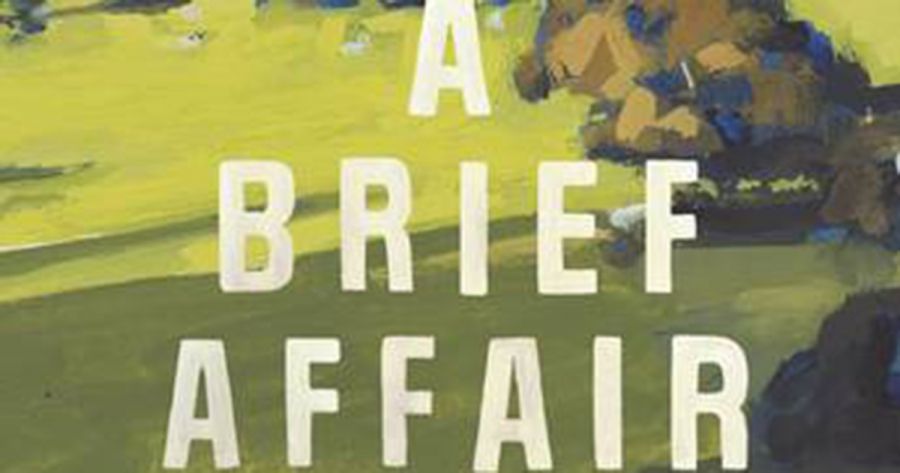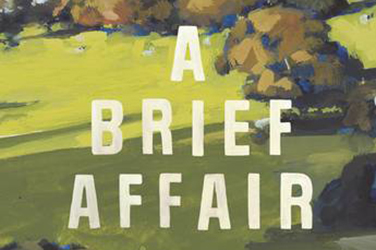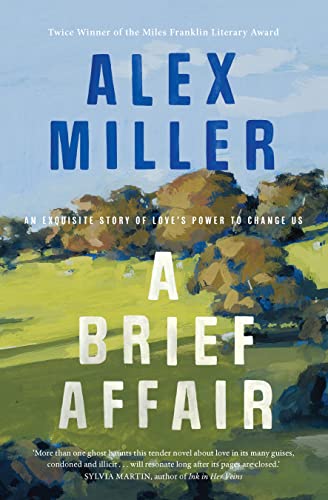
- Free Article: No
- Contents Category: Fiction
- Review Article: Yes
- Article Title: A time of stone
- Article Subtitle: Alex Miller’s thirteenth novel
- Online Only: No
- Custom Highlight Text:
Frances Egan, ‘a smart-looking woman of forty-two’, seems to lead a charmed life. A scholar of national distinction in the field of management, she was recently shoehorned into the role of head of school by a vice-chancellor who needed a woman ‘for the appearance of the thing’. Driven by ambition (she wants to be a professor), she accepted. She and her husband, Tom, a cabinetmaker committed to traditional methods of woodcraft, live with their two children, Margie and ‘little Tommy’, on a farm near Castlemaine they bought last year, fulfilling a lifelong dream.
- Featured Image (400px * 250px):

- Alt Tag (Featured Image): Penny Russell reviews 'A Brief Affair' by Alex Miller
- Book 1 Title: A Brief Affair
- Book 1 Biblio: Allen & Unwin, $32.99 pb, 264 pp
- Book 1 Cover Small (400 x 600):

The secret weighs on her, not out of guilt but in the knowledge that the encounter has changed her. At work and at home, she has lived for others. With her lover she lived, briefly, for herself. Now she sees colleagues and family through less enchanted eyes. She is irritated even by Tom’s good nature, his reliable perfections as husband, father, cook, and craftsman. Intimacy has become humdrum. She yearns for something more, senses possibilities she did not know she wanted. She cannot tell this to her family without risking everything she has.
Such is the set-up to Alex Miller’s latest novel, but from here it takes an unexpected path. Fran’s workplace is a building that was once a lunatic asylum, her office still known as ‘Cell 16’. When the old caretaker gives Fran a diary written by a former inmate of her ‘cell’, Fran feels an immediate sense of connection with the writer. Something about Valerie’s story chimes with her own nameless yearning. She carries the diary with her like a talisman, the writer’s intimate voice companionable in her new isolation, the turmoil of Valerie’s young life silencing her unquiet dreams.
The ‘asylum’ belongs to a curiously timeless past: a ‘time of stone and silence and heaviness and history, and rain’. When Fran visits an unrenovated part of the 1870s building, she feels she has ‘stepped back into old Europe’. Betraying a shaky grasp of history, she muses that she would not have wanted to live then: ‘They might have burned her or flayed her alive with her lover.’ So many tropes of gothic horror accompany the appearance of Valerie’s diary that it is an anticlimax to find that it dates from the late 1950s. But it doesn’t matter, because this fictional asylum owes little to the history of mental health care. Most Australian institutions were calling themselves ‘mental hospitals’ by the 1930s: this one remained a ‘lunatic asylum’ until 1960. Its wards were called ‘cells’ and spaces were set aside for ‘convict lunatics’ and ‘refractory’ women – echoes, perhaps, of the female factories of the convict era. Such loose borrowing from history allows Miller to associate Valerie’s relatively recent experiences with all the horrors of an alien, imagined past.
Time moves in mysterious ways. Weeks drag wearily; months disappear in a blink. A four-month trip to Europe takes place between Part 2 and Part 3, with almost no impact on family or workplace relations. Most of the consequential action occurs within one surprisingly long day.
There are some jarring discrepancies. Fran seems neither surprised nor curious to find a detail from 1947 in Valerie’s 1957–62 diary. Later, we are told it was written from memory, but it’s an unconvincing save. The caretaker, Joseph, and his wife give different dates for his arrival at the asylum. Neither quite matches the passage of time in the novel. If you believe his version, you must also believe he was allowed to marry an asylum inmate when he was only sixteen.
Perhaps Miller is deliberately playing with time, but some of this looks like carelessness. The carelessness is surprising because age itself is a critical theme. Unlike the vague menace of the past, old age looms as a precise and distressingly imminent future. Contemplating sixty-three-year-old Joseph and his wife in their ‘private world of old age’, Fran realises that this is ‘the world to which all our efforts and struggles are leading us … A place in which there is no future left’. An older character later underlines the message: ‘Old people smell of their decay.’ Life, not love, it turns out, is the ‘brief affair’.
Lines like these seem to come straight from an ageing author’s heart. Shocking, even moving, they are not quite sufficient to rescue the novel from a creeping sense of banality. Miller works hard to create an atmosphere of profound significance, but in the end the novel feels inconsequential. Nothing explains anything else. Birds fly by, heavy with symbolism. Life rolls on.


Comments powered by CComment